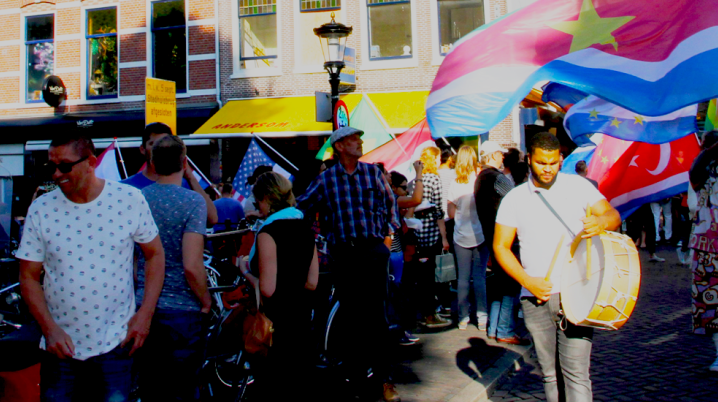
The outcomes of European colonialism have shaped nowadays global society and are reflected in the unbalanced power relations affecting geopolitical and economic domains. Also on an individual level, nationalistic beliefs, racist attitudes, and discrimination between communities are still widespread issues. It is crucial that international cultural organisations, which propose themselves as intermediaries between countries and communities, recognise these issues and act towards equality both in their internal dimension and in their external relationships.
In November 2023, DutchCulture and EUNIC organised an online knowledge-sharing workshop (KSW) to raise awareness of Decolonising Cultural Relations. The workshop was an opportunity for the participants working in EUNIC’s global network to share opinions and perspectives in a safe and democratic space.
During the session, an introduction to the topic of decolonisation was given by two guest speakers. Karwan Fatah-Black (historian and researcher, Leiden University) gave an overview of divergent trends of behaviour towards decolonisation currently going on in Europe. Kathleen Ferrier (Chair, Dutch UNESCO Commission) highlighted the role of culture in decolonisation and the importance of multiculturalism in societies. Participants were then divided into different break-out rooms. Topics of discussion for these smaller sessions ranged from education and awareness of decolonisation to policy and strategies and were identified through a preliminary questionnaire (always conducted among participants) which helped to shape the event’s programme.
In-depth information on these discussions can be found in the KSW report, directly available on this webpage. It contains a complete overview of the workshop, summaries from the guest speakers’ perspectives, as well as useful key-takeaways from each break-out room. It also contains an insight into the questionnaire results, an introduction by Kirsten van den Hul (Director, DutchCulture), and a conclusion by Andrew Manning (Director, EUNIC). Finally, as the different perspectives provided by the report can act as indirect recommendations, the document aims to be a useful reading to encourage a positive development to the approach and implementation of fair cultural relations between EUNIC organisations but also between any kind of cultural organisation working with international partners.




